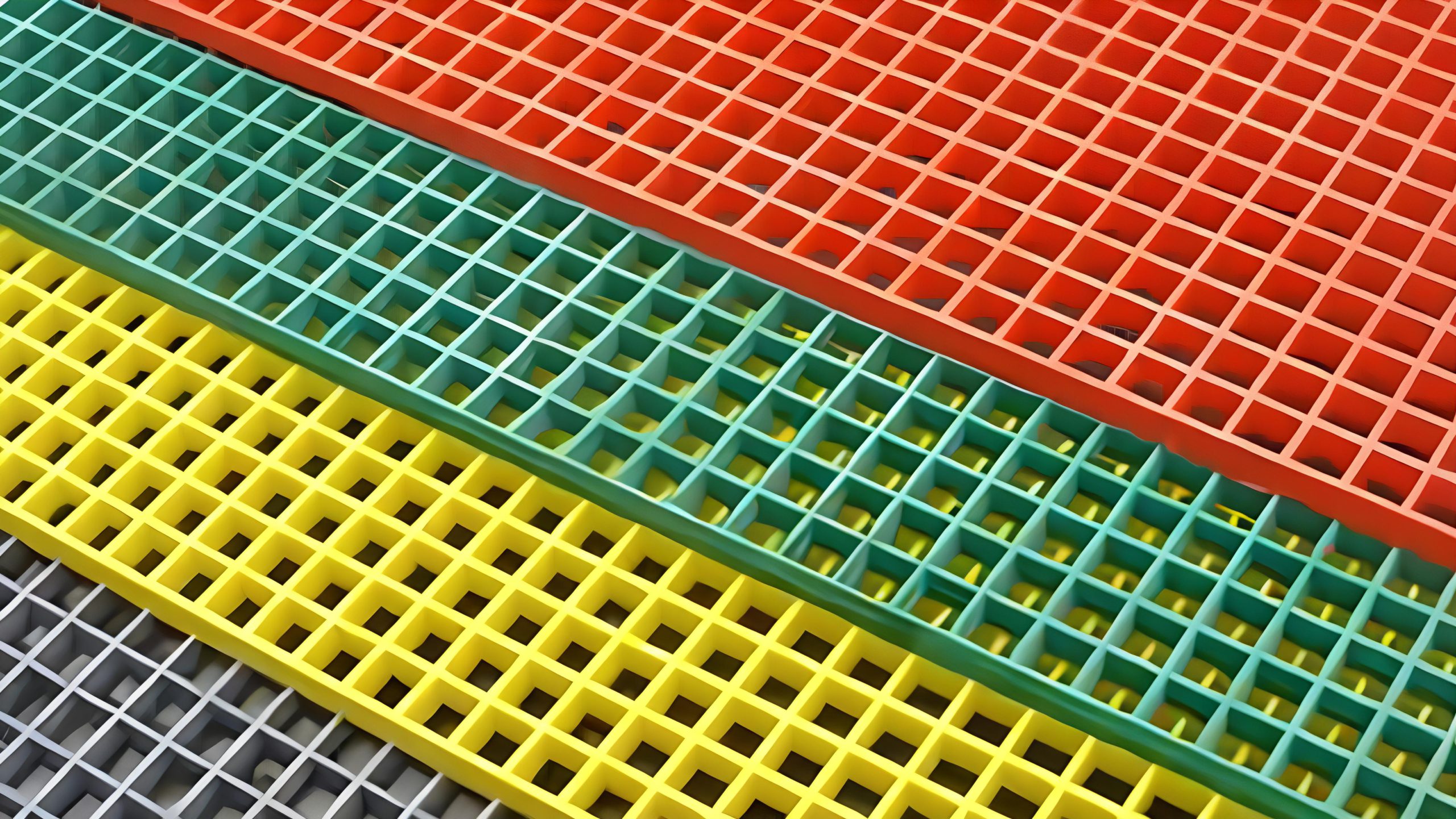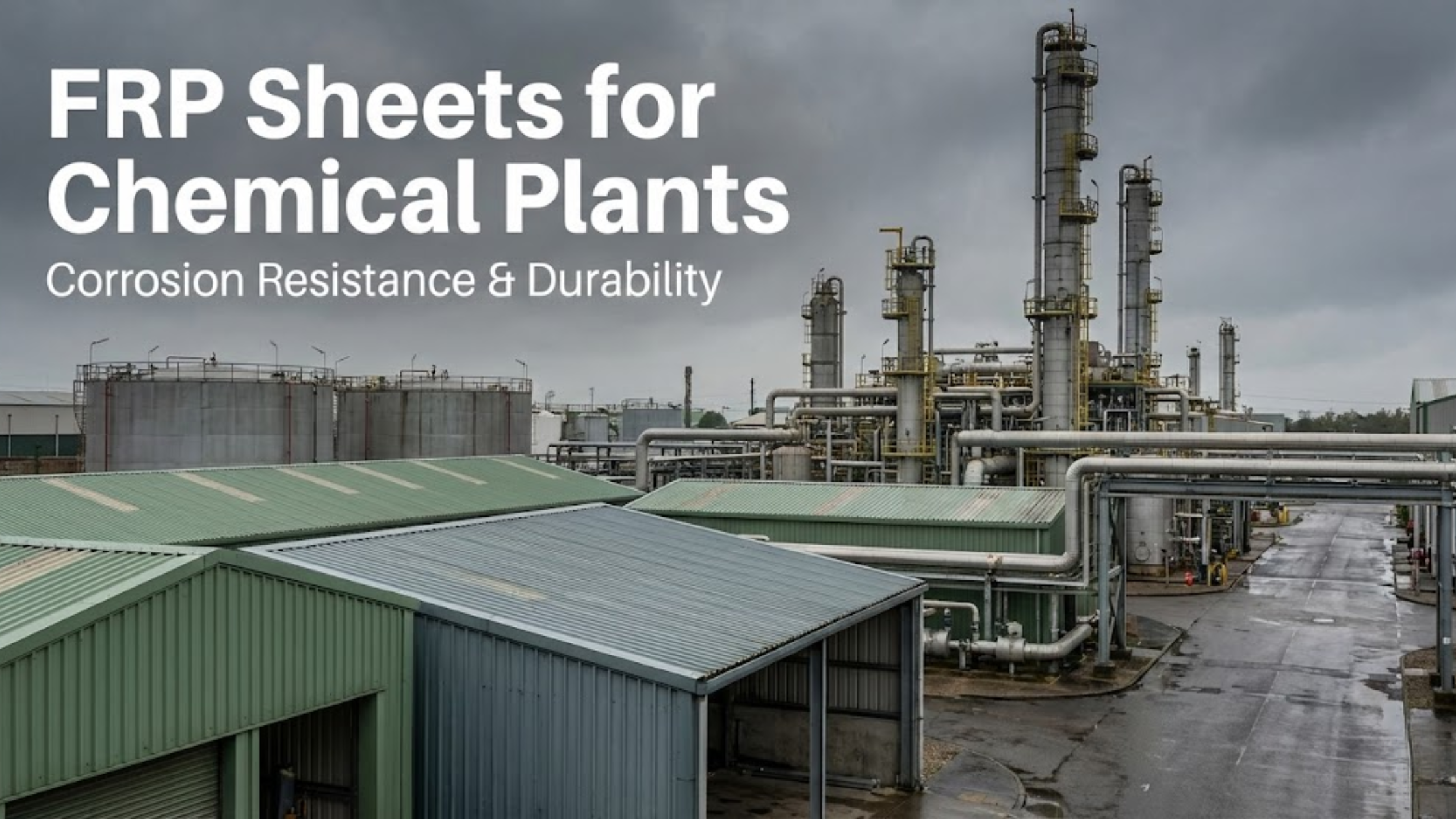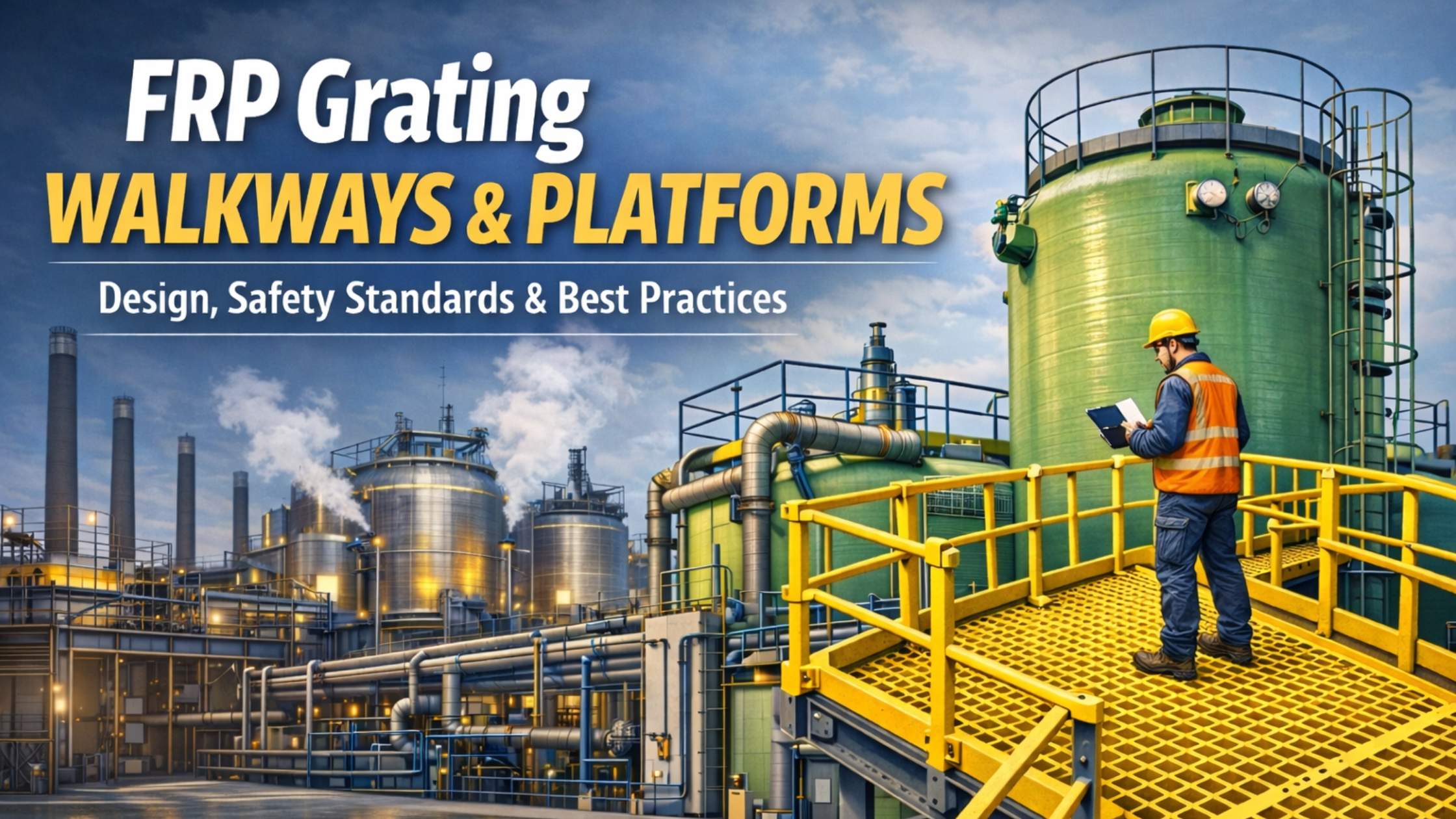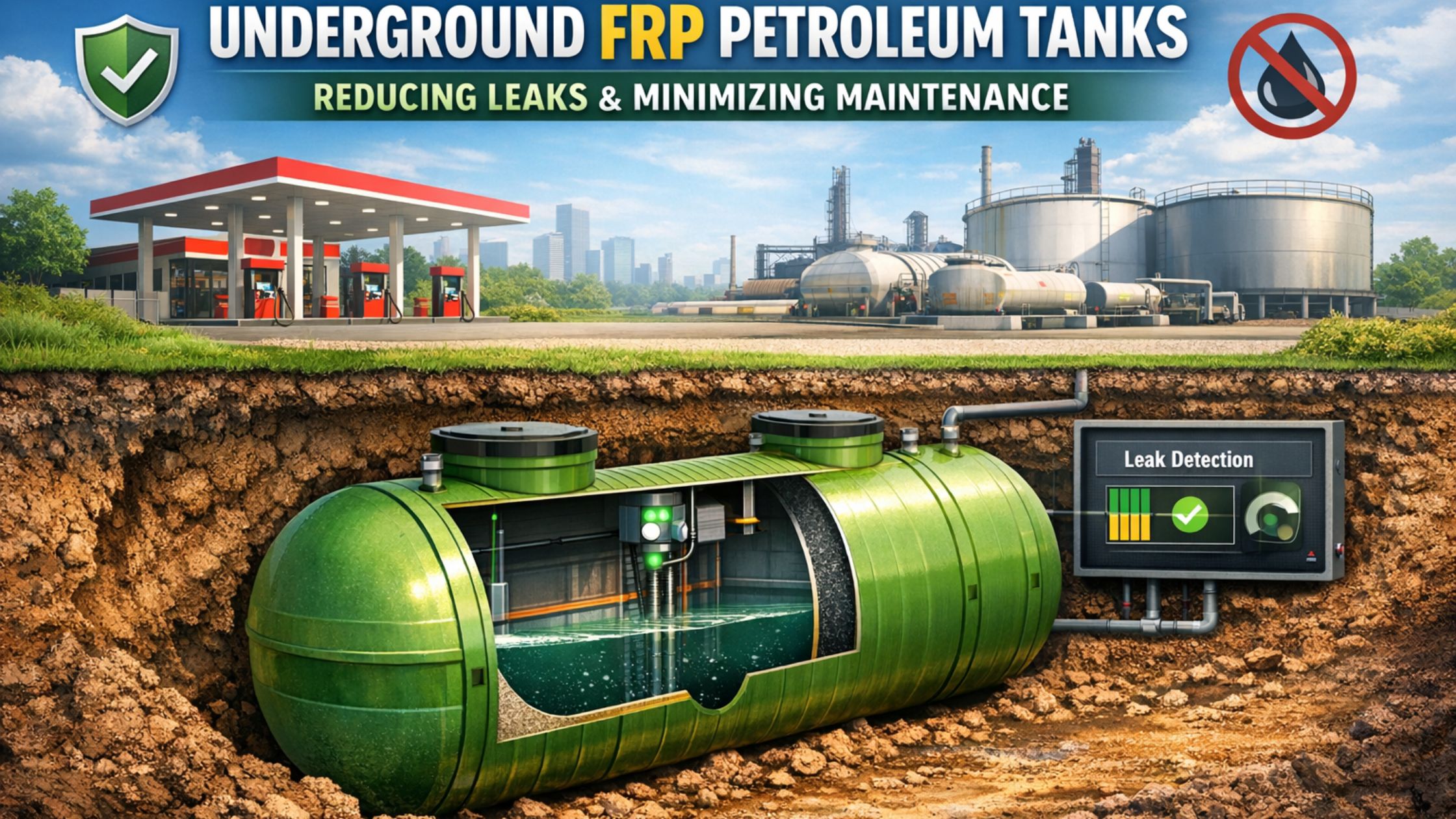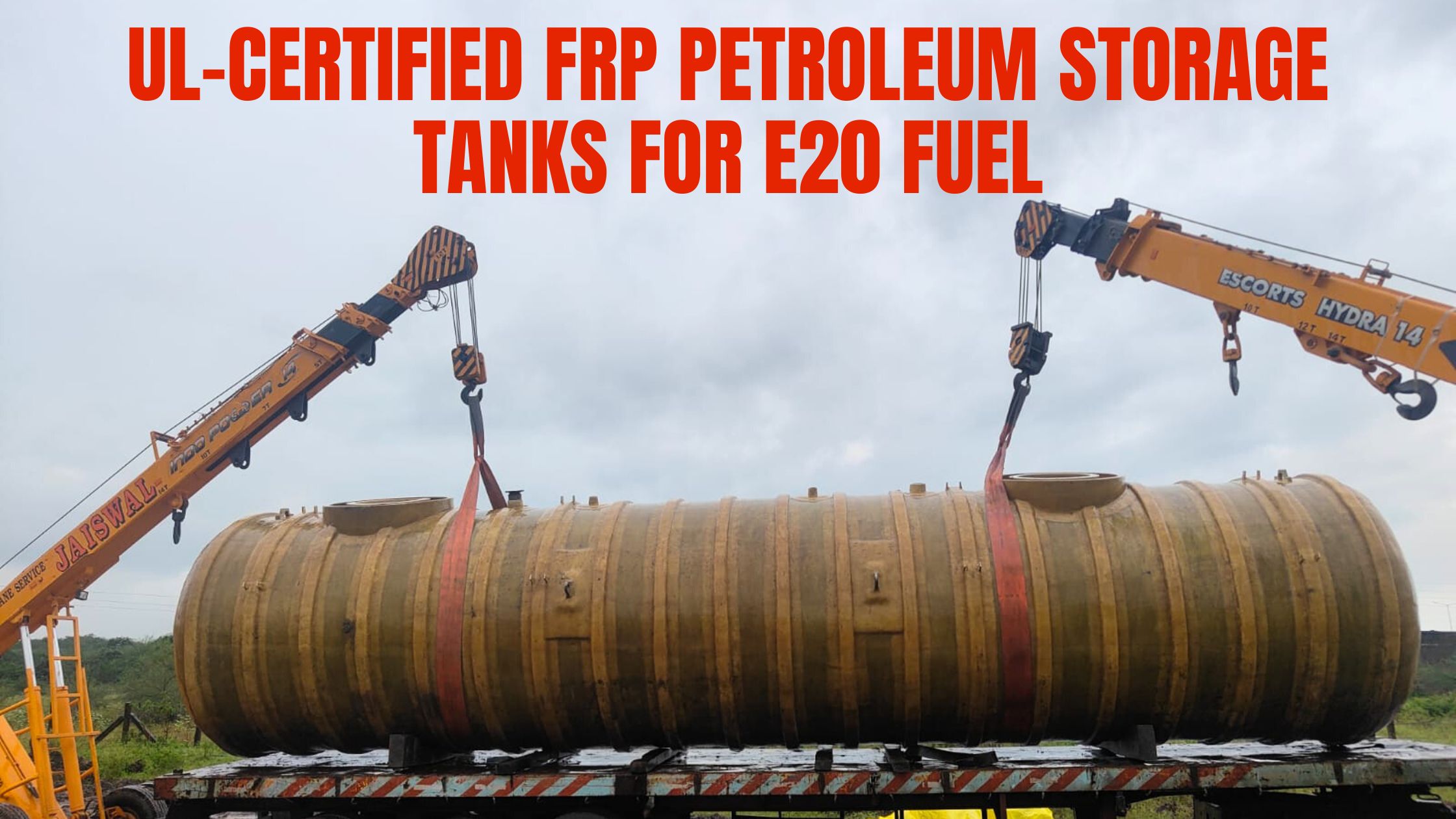In today’s industrial landscape, the demand for reliable, durable, and versatile materials is greater than ever. FRP gratings, or Fiberglass Reinforced Plastic gratings, have emerged as a modern solution that meets these needs and more. Composed of resin and fiberglass, FRP grating solutions are engineered to deliver exceptional performance in harsh environments. With their lightweight construction, corrosion resistance, and long service life, FRP gratings are increasingly used across various industries, from chemical plants to construction sites. This guide explores the world of FRP gratings, including their types and diverse applications.
What are FRP Gratings and Their Types?
Overview of FRP Gratings:
FRP gratings are composite structures made from fiberglass reinforced with plastic resins, offering a strong yet lightweight solution for industrial flooring, platforms, and walkways. Unlike traditional steel or aluminum gratings, FRP grating solutions are corrosion-resistant, non-conductive, and highly durable, making them ideal for use in harsh environments.
Materials Used in FRP Gratings:
FRP gratings are made from two primary components: fiberglass and resin. Fiberglass provides the strength, while the resin acts as a binder, offering additional properties like corrosion resistance and fire retardance. Common resins used include:
Fiberglass Reinforcement: This provides the structural strength and flexibility of the grating.
Resin Types: Different types of resins are used depending on the specific application and environment. The most common resins include:
- Polyester Resin: Cost-effective and suitable for general-purpose applications.
- Vinyl Ester Resin: Offers enhanced corrosion resistance, making it ideal for chemical processing environments.
Types of FRP Gratings:
1. Molded FRP Gratings
Made through a molding process, these gratings are known for their high strength, bi-directional load-bearing capacity, and corrosion resistance. They are commonly used in areas exposed to chemicals and moisture, such as water treatment plants and chemical factories.
2. Pultruded FRP Gratings
These gratings are manufactured through a pultrusion process, allowing for continuous lengths of material to be produced. Pultruded gratings are known for their excellent load-bearing capacity, making them ideal for heavy-duty applications like walkways and platforms.
Versatile Applications of FRP Gratings Across Industries
FRP gratings are incredibly versatile and are used across a wide range of industries due to their unique properties. Here are some key sectors where FRP gratings play a significant role:
Chemical Processing Plants
In chemical plants, FRP gratings provide excellent resistance to corrosive substances, making them ideal for platforms and walkways. The non-conductive nature of FRP grating solutions adds an additional layer of safety, especially in hazardous environments.
Oil and Gas Industry
The oil and gas industry often operates in highly corrosive environments, such as offshore platforms and refineries. FRP gratings are used for walkways, stair treads, and platforms, providing a durable, corrosion-resistant, and non-slip surface that enhances safety and longevity.
Water Treatment Plants
Water treatment plants, with constant exposure to moisture and chemicals, benefit greatly from FRP grating solutions. These are commonly used for filter platforms and drainage covers due to their non-corrosive and maintenance-free properties.
Food and Beverage Industry
Hygiene and ease of cleaning are crucial in the food and beverage industry. FRP gratings are resistant to chemicals, easy to clean, and do not corrode, making them suitable for food processing facilities, breweries, and dairies where cleanliness is essential.
Construction and Infrastructure
In construction, FRP gratings are used for building bridges, maintenance platforms, and stair treads. Their lightweight nature allows for easy installation, and their resistance to environmental factors ensures long-term performance, reducing the need for frequent repairs or replacements.
Power Plants
Safety is paramount in power plants, where exposure to electrical hazards is common. FRP gratings are non-conductive, providing a safe flooring option in these environments. They are also resistant to chemicals and can withstand heavy loads, making them suitable for various plant areas.
Mining and Metal Industries
The mining and metal industries require materials that can endure extreme conditions, including heavy loads, harsh chemicals, and fluctuating temperatures. FRP grating solutions provide the necessary durability, offering a strong, corrosion-resistant surface that can meet the rigorous demands of mining operations.
Choosing the Right FRP Gratings for Your Needs
Selecting the appropriate FRP gratings depends on several factors, including load requirements, environmental conditions, and specific applications. Here’s a quick guide to help you choose:
- Load Requirements: Determine the load-bearing needs of your application to ensure the selected gratings can handle the weight.
- Environment: Consider factors like exposure to chemicals, moisture, or extreme temperatures when choosing FRP gratings.
- Specific Applications: Different applications may require specific types of gratings, such as molded for impact resistance or pultruded for higher strength.
Installation and Maintenance Tips for FRP Gratings
Proper installation and maintenance are key to maximizing the benefits of FRP gratings. Here are some tips to help ensure safe and efficient use:
Installation Guidelines
- Site Preparation: Ensure the installation area is clean, level, and free from debris. Proper site preparation helps prevent damage during installation.
- Handling and Placement: Handle FRP gratings with care to avoid damage. Use appropriate lifting equipment if necessary and place the gratings gently to avoid impact damage.
- Securing the Gratings: Secure the gratings using recommended clips and fasteners to ensure they remain in place. Properly installed gratings minimize movement and enhance safety.
Maintenance Practices
- Regular Cleaning: Clean the gratings regularly to prevent the build-up of dirt, grease, and other contaminants. Use a mild detergent and water for routine cleaning.
Inspection: Periodically inspect the gratings for any signs of wear, damage, or loose fittings. Promptly address any issues to maintain safety and performance.
Avoid Harsh Chemicals: While FRP gratings are resistant to many chemicals, it’s essential to avoid prolonged exposure to harsh substances that could potentially weaken the resin matrix.
Future Trends in FRP Gratings
Innovations in FRP Gratings:
The FRP industry continues to evolve, with advancements in materials and eco-friendly options that reduce environmental impact. Innovations like enhanced UV protection and improved fire resistance are paving the way for new applications.
Growth in Demand Across Industries:
The global demand for FRP gratings is expected to grow as industries recognize their long-term benefits. With increasing awareness of safety, sustainability, and cost-effectiveness, FRP gratings are set to become a staple in industrial applications worldwide.
Conclusion
FRP gratings have revolutionized the way industries approach safety, durability, and efficiency in various applications. From chemical plants to marine environments, their versatility and superior properties make them an essential component in modern industrial settings. Whether you’re looking for a durable walkway, a non-conductive platform, or a corrosion-resistant cover, FRP gratings offer a reliable solution that meets your needs.
Contact us today for expert guidance and customized FRP grating solutions that will enhance the safety and efficiency of your operations.
Also read: Why Fiberglass Grating is a Superior Choice Over Metal Gratings
Follow us on Facebook: @fibrograts

